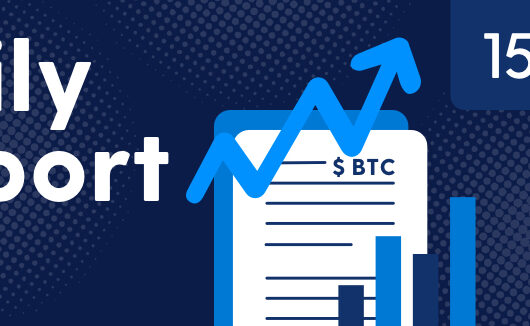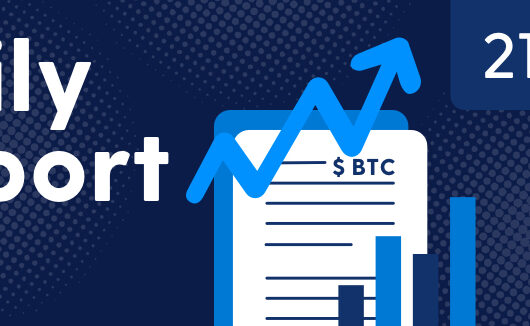Weekend Recap: Bitcoin hash rate hits record new high

We kick off May with an uncontainable amount of excitement for Bitcoin’s impending halving event. We did, however, manage to tear ourselves away from the countdown clock for a few minutes to bring you this weekend’s other crypto news. The US Congress is weighing up blockchain voting, Elon dunMusk is losing his cool on Twitter over lockdown regulations, and more. Read all about it.
Bitcoin hash rate hits new record high ahead of halving
Following the mid-March price crash, which led to a brief exodus of miners operating older hardware, the Bitcoin hash rate hit a new all-time high of just under 150 exahashes per second (EX/s) on 3 May.
#Bitcoin hash rate hit a new all-time high. pic.twitter.com/XtPbZRU8wp
— glassnode (@glassnode) May 3, 2020
Spectators believe Bitcoin miners could be allocating more capital and machinery to the network than ever before. The surge could, therefore, be a result of new mining machines and/or new ASICs having been recently launched. Rising crypto prices could also have triggered the hash rate to skyrocket, too.
Johnson Xu, head of research and analytics at TokenInsight said that “a large percentage of older generation minders such as S9s will be shut down” shortly after the halving transpires. He continued to say the halving is “a healthy rebalance to force the network to readjust itself into an efficient network where miners can make sufficient margin.”
Number of women holding crypto soars
A recent CoinMarketCap report indicated a 43.24% growth among female crypto users in Q1 of 2020. The study compared this to a meagre 15.5% increase seen in Q4 of 2019.
Among women between the ages of 18 to 24-years old, it noted a 65% increase, while the Americas and Europe saw more than 50% growth. The research also highlighted an average of more than 80% in growth within some countries throughout Latin America, Europe and Asia.
Greece took the lead in Europe with the fastest growth in women holding crypto at 163.67%. Argentina came out top in Latin America, experiencing growth of over 98.23%. And in Asia, only Indonesia registered a growth of over 88.92%. Africa showed a much slower rate of growth at only 17.99%.
In contrast to the growth news, Cointelegraph reported in April about a significant decrease in male and female users from China. After falling from 13th to 24th place between January 14 and 25, speculators suggested the drop could have come as a result of increased censorship from “foreign internet” in an attempt to control coronavirus coverage in the country.
John McAfee claims it’s “easy” to figure out who Satoshi is
Here we go again. In a recent interview, libertarian fugitive and everyone’s favourite Twitter nut job, John McAfee, has claimed he knows the identity of Satoshi Nakamoto with 99% certainty.
McAfee claimed Satoshi Nakamoto was in fact not a single person, rather a “team of eleven people over a period of five years, that came up, eventually, with [Bitcoin].” He continued, “How they decided who would write the paper, I don’t know. But anybody who wants to know who it is — I mean, you know who the options are, you’ve got Craig Wright possibly, I’m not going to name everyone else otherwise you’ll figure out who it is, but somebody wrote the whitepaper.”
In line with other discussions around who the mysterious Bitcoin creator(s) is, McAfee mentioned a popular assertion that using linguistics analysis, or stylometry, of the whitepaper, could easily uncover Satoshi’s identity.
McAfee said, “If you read the whitepaper, number one, it’s totally clear he’s English — every single word that has a different spelling in English and American is English,” He continued, “Number two, he left tells. There is only five percent of the population that has two spaces after a period — everything has two spaces after a period. And, the format of the document was identical to documents that he had published professionally.”
He recounted a previous plan to publicly reveal Satoshi’s identity, which he decided against after an alleged phone call with Satoshi himself. “I have spoken to him on the phone, I was actually going to divulge who he was. Why? Because all of this nonsense was just stupid, people wasting time over nothing — I was going to say, ‘listen, it was this guy,’” McAfee said.
McAfee explained Satoshi’s reaction, “He said, ‘Ok, if you’re right, then that person has the ability to do something. But what if you’re wrong? You will end up destroying an innocent man’s life forever, and probably cause his death.”
He finished off with “But if you want to know, figure it out yourself, it’s easy.”
US Congress considers blockchain voting amid COVID-19 crisis
According to a Senate memo dated 30 April, the US congress is thinking about how America’s national legislature can operate in a decentralised state. The memo was drafted in the “Roundtable on Continuity of Senate Operations and Remote Voting in a Time of Crisis”, an event hosted by the Permanent Subcommittee on Investigations.
The memo noted that “The COVID-19 virus has shut down major sectors of our society, including many functions of Congress. By rule and custom, the two chambers of Congress have always met in person to conduct business, including committee hearings, floor deliberation, and voting. Neither chamber has contingency plans that allow those functions to proceed remotely, but this crisis highlights the need to consider means for Congress to do its job at times when it may not be safe for members and staff to gather in person.”
Blockchain wasn’t specifically mentioned in the nearly two-hour-long roundtable, but the memo managed to highlight two essential areas that any technology would need to address: authentication and encryption. The memo emphasised that regardless of which technology they use, it would need to ensure that only actual senators are voting and outside attackers aren’t able to disrupt the process.
The memo explores the use of end-to-end encryption technology for voting purposes, mentioning blockchain as a possible solution. “With its encrypted distributed ledger, blockchain can both transmit a vote securely and also verify the correct vote. Some have argued that these attributes make blockchain useful for electronic voting broadly. Blockchain can provide a secure and transparent environment for transactions and a tamper-free electronic record of all the votes. It also reduces the risks of incorrect vote tallies. Moreover, some firms have already begun to deploy blockchain-like technology to help countries, like Estonia, run elections entirely online.”
Some decentralised protocols and communities already use on-chain mechanisms for governance decisions. Former presidential candidate Andrew Yang previously expressed his enthusiasm and support for blockchain applications, although the idea has also attracted criticism.
It’s unlikely the Senate will embrace a blockchain voting solution anytime soon, with members seeing personal contact and deliberation as too important for legislative processes. Regardless, the memo serves as an important starting point in trying to define how Congress, and other governmental bodies, can continue to operate in a crisis.
 Discover
Discover Help Centre
Help Centre Status
Status Company
Company Careers
Careers Press
Press


